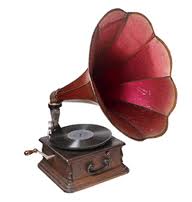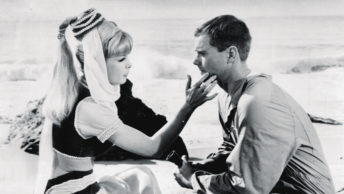Wouldn’t it be nice if we were older, then we wouldn’t have to wait so long? And wouldn’t it be nice to live together, in the kind of world where we belong?
You know it’s gonna make it that much better, when we can say goodnight and stay together.
Wouldn’t it be nice if we could wake up in the morning when the day is new? And after having spent the day together, hold each other close the whole night through?
Happy times together we’ve been spending. I wish that every kiss was never-ending. Wouldn’t it be nice?
May if we think and wish and hope and pray, it might come true. Baby, then there wouldn’t be a single thing we couldn’t do. We could be married. And then we’d be happy. Wouldn’t it be nice?
You know, it seems the more we talk about it, it only makes it worse to live without it. But let’s talk about it. Wouldn’t it be nice?
Good night, my baby. Sleep tight, my baby.
 All right. I admit it. I’m sixty-five years old and love the “Oldies but Goodies” songs that dominated the airwaves in the late fifties and early sixties. Roy Orbison, Gene Pitney, Brenda Lee, Connie Francis, and, of course, Elvis Presley were just a few of the stars of that era. I had my own collection of 45s and still have a number of them that are still playable. All I need is a workable turntable.
All right. I admit it. I’m sixty-five years old and love the “Oldies but Goodies” songs that dominated the airwaves in the late fifties and early sixties. Roy Orbison, Gene Pitney, Brenda Lee, Connie Francis, and, of course, Elvis Presley were just a few of the stars of that era. I had my own collection of 45s and still have a number of them that are still playable. All I need is a workable turntable.
During my teen years I enjoyed the music and could identify with the fun of “Itsy Bitsy Teenie Weenie Yellow Polkadot Bikini” or feel the pathos of “Crying.” As probably most people of my generation might say, it was a better time in America, a better time to grow up.
I never left Rock n Roll, but it left me somewhere around 1968. Once the Beatles went from the innocent “I Want to Hold Your Hand” to “Helter Skelter,” the tide had turned. As more and more hit songs focused on drugs, sex, violence and vulgarity, I happily stayed stuck in the sixties.
Now I often turn to YouTube to hear the wonderful songs of the past, and I am struck by their reflection of the morality of the time. The closest song with a drug theme was “Love Potion Number Nine.” As for illicit sex? Never even mentioned, although there may have been some songs that one could interpret that way. A “sexy” song was “Put Your Head on My Shoulder” or “The Way You Look Tonight.”
Yes, I admit there was some violence. When The Angels sang, “My Boyfriend’s Back,” we all knew that some kid was going to get a beating. But at least we knew that he wasn’t going to get shot. And when it came to vulgarity, it didn’t exist. Off the top of my head, I cannot recall a song using any word that could be considered vulgar.
To demonstrate my point, I have included the lyrics to the Beach Boys’ “Wouldn’t It Be Nice,” recorded in 1966. Let’s examine the moral content.
In the first stanza, there are two assumptions about romance. First, reaching adulthood is necessary for a fulfilled romance. Second, waiting for that maturity is, although difficult, accepted as a reality.
The second, third and fourth stanzas are not about a hook-up but a permanent married relationship. The idea is to spend each day and each night together for many, many years.
In the fifth stanza, any doubt about the moral aspect of the song is eliminated. If the couple can “think and wish and hope and pray, it might come true.” And what is the it they are talking about? Two lines later we find the answer: being married–and marriage means happiness. Two stanzas later, the couple’s yearning for marriage is so intense that it’s painful to have to wait. But, paradoxically, it’s exciting for them to talk about it and to look forward to their wedding day.
Do teenagers hear this message today in the music they listen to? I doubt it. If so, it must be a rare occurrence. The bottom line is that I was raised in a culture that reinforced the values of the time. Family sitcoms on television portrayed parents who were loving and wise. Although it was unrealistic, the parents were never seen in the same bed together. Movies were devoid of explicit sexual scenes, and it was highly unusual for vulgarities to be uttered by the actors. And, as explained above, the popular songs were clean, fun, and harmless.
It has been said that culture is more important than politics. If that’s true, and I believe it is, then perhaps it is our decadent culture that is destroying America. Politics is just a reflection of that decadence.








